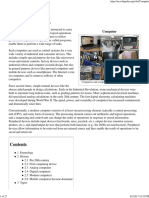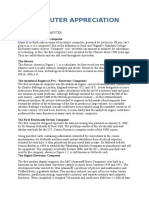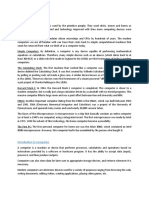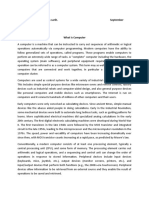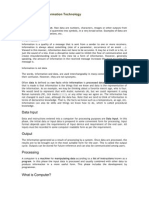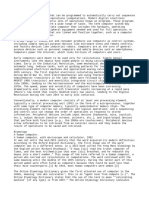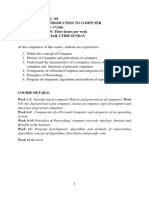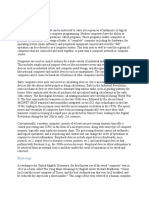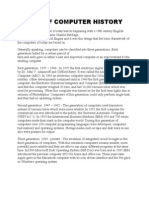0% found this document useful (0 votes)
49 views1 pageComputing Basics: Constituent
Computers are electronic devices that can process, store, and display information. Originally meant to perform calculations, computers are now general-purpose machines capable of any type of information processing. Computers have expanded what is possible, allowing for more accurate weather forecasting, control of systems like phone networks and vehicles, and embedding intelligence in everyday appliances. They have enabled new questions to be asked and answered across many domains.
Uploaded by
Ariel Nicor AndresioCopyright
© © All Rights Reserved
We take content rights seriously. If you suspect this is your content, claim it here.
Available Formats
Download as DOCX, PDF, TXT or read online on Scribd
0% found this document useful (0 votes)
49 views1 pageComputing Basics: Constituent
Computers are electronic devices that can process, store, and display information. Originally meant to perform calculations, computers are now general-purpose machines capable of any type of information processing. Computers have expanded what is possible, allowing for more accurate weather forecasting, control of systems like phone networks and vehicles, and embedding intelligence in everyday appliances. They have enabled new questions to be asked and answered across many domains.
Uploaded by
Ariel Nicor AndresioCopyright
© © All Rights Reserved
We take content rights seriously. If you suspect this is your content, claim it here.
Available Formats
Download as DOCX, PDF, TXT or read online on Scribd
/ 1



